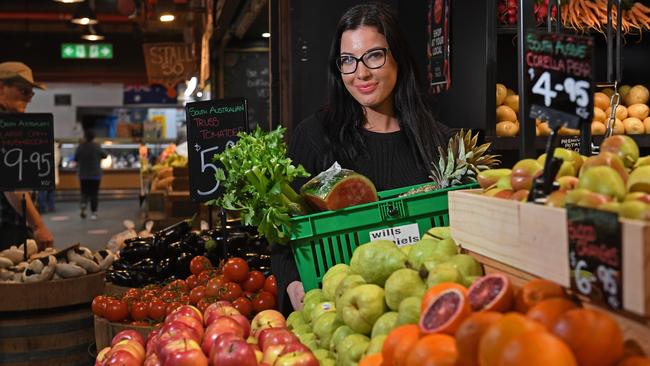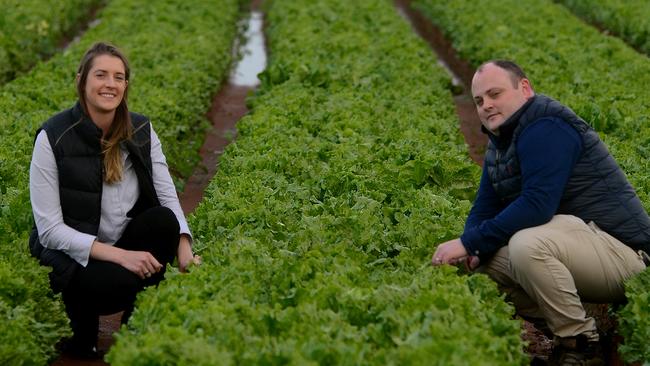Horticultural businesses raise warning of price hikes without more workers
Attracting labour for harvest work is notoriously difficult and the coronavirus pandemic has made it even harder for the state’s horticulture sector – meaning fresh fruit and veg are about to get more expensive.

SA Business
Don't miss out on the headlines from SA Business. Followed categories will be added to My News.
- Grain handler needs hundreds more workers
- Don’t panic: We have supply despite Victoria shutdown
- How to get the most out of your Advertiser digital subscription
Consumers face paying up to 60 per cent more for fresh fruit and vegetables unless swift action is taken to address a looming worker shortage, the industry warns.
Job vacancies to harvest the state’s crops, resulting in higher prices, are being predicted because the coronavirus pandemic has forced thousands of overseas backpackers to return home.
The Australian Fresh Produce Alliance, in a submission to a federal government inquiry, says this worker shortfall was likely to hike prices by up to 60 per cent.
Alliance chief executive Michael Rogers said consumers should brace for high prices by the end of the year, urging the federal government to provide one-off $1200 payments to lure Australians from the cities to farms for harvest jobs.
“Going into November, December and into 2021 will be the real challenge,” he said.
“The workforce that normally works to harvest fruit and vegetables won’t be there.
“Without those workers, produce won’t be harvested, there will be a shortage of fruit and vegetables and they’ll become much more expensive.”

Mr Rogers said a recent survey of 12 businesses highlighted the importance of overseas workers.
“Since the start of COVID, they’ve had 23,000 job inquiries and only eight per cent of those inquiries have come from Australians,” he said.
Nearly 128,000 jobs would also be lost nationally if harvest roles cannot be filled, including in related industries, the submission says.
AusVeg SA chief executive Jordan Brooke-Barnett said the Mallee was the region most in need of workers.
“With COVID-19 – a time you would think people would be looking for work – we’re still not attracting domestic workers,” he said.
Traditionally, about 140,000 backpackers are part of the Working Holiday Makers visa program, allowing people a 12-month stay by doing seasonal work. However, that figure has dropped to 80,000 and is expected to decline further.

With the fresh produce industry the fastest growing and the most labour-intensive sector within Australian agriculture, Mr Brooke-Barnett said it was important safeguards were put in place to ensure the sector could keep moving forward.
“We need to make sure we have enough workers, because we don’t want to drop our productivity,” he said.
Owner/operator of the Aubergine’s fruit and vegetable stall in Adelaide Central Market Nick Kotsanis said there were still some bargains. Bananas were between $1.99 to $2.99 per kg, while brocollini was $2.99 a bunch and cauliflowers between $2.99 to $3.99.
“ … There will be price rises, simply due to supply and demand at the moment. I don’t expect there will be any reduction in prices for at least the next four to five weeks, and maybe even longer.”
MORE NEWS
Farmers looking to the skies in hope
SA’s best performing country schools for NAPLAN
Wills & Daniel employee Victoria Kakoulis said there had been price rises on some lines already, with Lebanese cucumbers rising from $4.95/kg to $9.95/kg in recent weeks. But she said there were still bargains to be found.
“Our large mushrooms vary in price from $6.95/kg to $9.95/kg, which is a really good price because they’re so large they’re basically a meal in themselves,” she said.
The federal and Northern Territory governments yesterday announced a trial of 170 workers, under the seasonal worker program, to travel to the NT to help with harvest.
